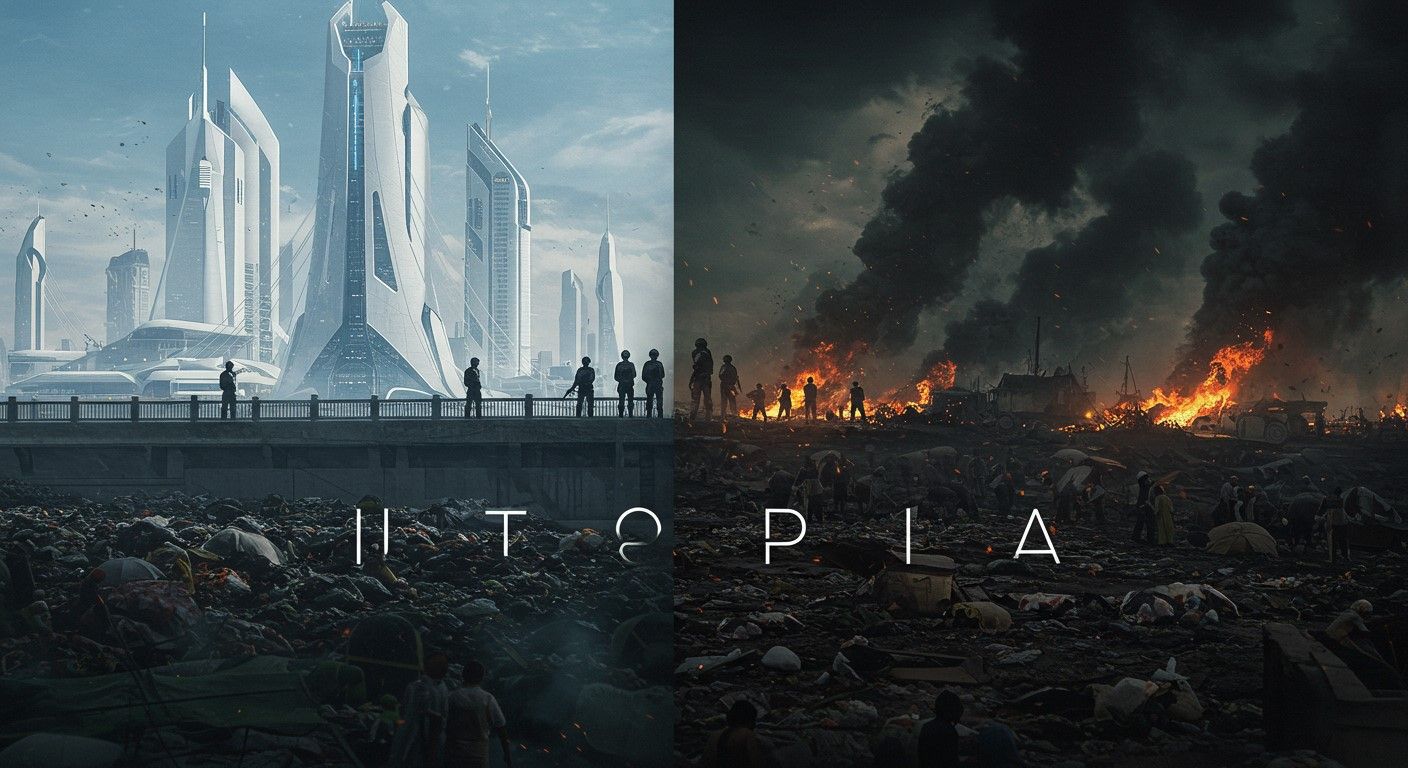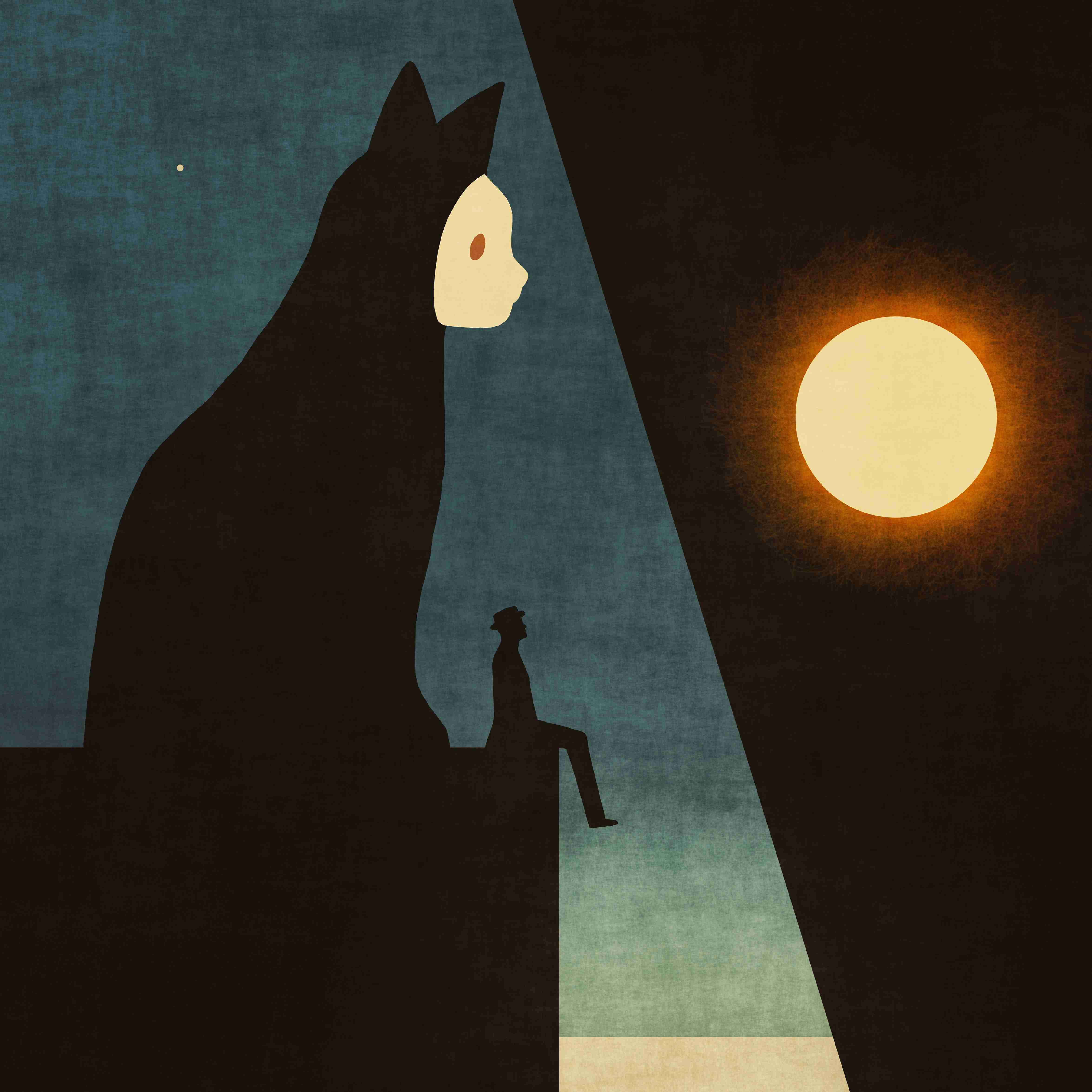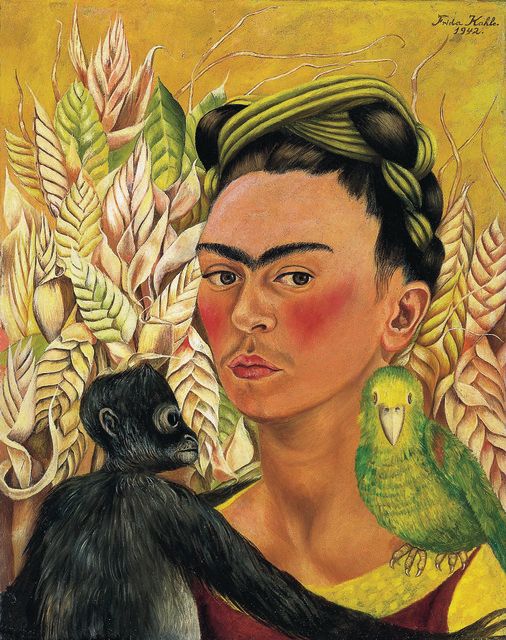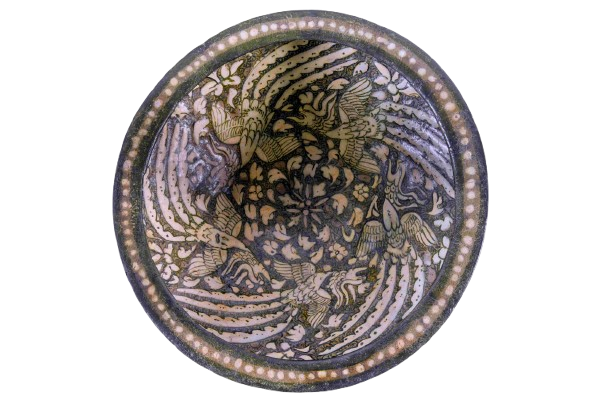The Godfather: How Ahmed Khaled Tawfik Created a New Arab Imagination
A man with limitless imagination, he often lived in his own world, full of possibilities and impossibilities. A masterpiece celebrating Ahmed Khaled Tawfik, a pioneering writer of horror, science fiction, fantasy, and medical suspense in the Arab world. Artwork: Midjourney in collaboration with Rym Al-Ghazal.
In the 1990s, the edge of a bed, under a dim lamplight, became a laboratory for a new kind of science fiction and horror. An entire generation of teenagers would end their day with a journey into strange worlds led by Dr. Refaat Ismail, the hero of the "Paranormal" series.
He was a retired hematologist, sick and insecure, but constantly forced to confront terrifying mythical creatures. This simple, affordable series became a gateway to new imaginary worlds for Arab readers.
Years later, a reader recalled those moments, saying, "It was as if they were movie tickets shown only in my imagination."
Ahmed Khaled Tawfik (1962–2018), the quiet Egyptian physician, created these worlds, changing Arab youth's relationship with reading, and raising the question: How was one writer able to build an imaginary Arab world that captivated an entire generation?
In fact, Tawfik did not emerge from a vacuum; there had been previous attempts in Arabic literature. In the middle of the last century, Tawfiq al-Hakim presented the play "Journey to Tomorrow" (1958), and the Egyptian writer Nihad Sharif (1932–2011) published famous novels such as "The Conqueror of Time," "The Thing," and "Under the Microscope," earning him the title of "Dean of Arabic Science Fiction."
However, since the 1970s, production of this literary genre has virtually ceased, and works dealing with futuristic science fiction have remained extremely rare, until the emergence of the modern Arab institution that introduced Nabil Farouk with his famous series "The Impossible Man," followed by the science fiction series "The Future File."
Only in the last decade has academic interest in neglected Arabic science fiction begun to emerge. The Egyptian Society for Science Fiction was founded in 2012 to revive this genre.
In this context, Ahmed Khaled Tawfik appeared in the early 1990s with “the Modern Arab Establishment”. In 1993, he published the first issue of the “Paranormal” series, which achieved widespread success. He then followed it with the “Safari” series, which combined adventure with medical science, “Fantasia”, and then his famous novel “Utopia” in 2007, which achieved great critical and commercial success.
Tawfik possessed a unique intellectual vision in constructing his imaginary worlds, blending scientific methodology with the allure of myth, and bringing together two opposites in a single plot. In the "Paranormal" series, Dr. Rifaat Ismail confronts vampires, werewolves, and Greek and Tibetan myths, but all with the mindset of a skeptical scientist.
In his stories, he takes us to the mysterious Tassili Caves in Algeria, to Scotland with the Loch Ness Monster, or to a medical laboratory in Africa to explain the Ebola epidemic and the tsetse fly. This use of scientific knowledge in a supernatural context was a distinct feature of his; it added a depth to suspense literature that went beyond simple entertainment.
Tawfik always remained on the edge between the reasonable and the supernatural, never surrendering completely to fantasy, nor closing the door to mystery entirely, but rather keeping his reader suspended between scientific and mythological interpretation.
This approach is also reflected in his heroes. Refaat Ismail is the ultimate antihero, far removed from the traditional superhero image—a thin, resourceful old man who survives thanks to luck. With his sarcasm and human flaws, Refaat seems relatable to the readers; we love him simply because he resembles us.
We didn't wish to become like him, because we already are. Refaat represents us because of his weakness, and his ability to exact revenge through sarcasm, not physical force.

An artistic portrayal of Dr. Refaat Ismail as envisioned by artificial intelligence, the protagonist of the worlds of mystery and the supernatural in Ahmed Khaled Tawfik’s Paranormal series. Created by Madar Studio using AI.
Tawfik's imaginary worlds were not an escape from reality, but rather a reflection of it. At the height of his career, he wrote novels that addressed societal issues: Utopia depicted a futuristic nightmare of Egypt in 2023 and its class divisions, and "Sha'abeeb" (2018) imagined an alternative homeland for Arab immigrants.
Tawfik was not just a novelist, but a cultural phenomenon who created a generation of readers and writers. He was dubbed the "godfather" of prominent figures such as Ahmed Murad and Hassan El Gendy. He inspired Arab writers such as the Saudis Ibrahim Abbas and Yasser Bahgat, authors of the novel "Hojan," which was adapted into a film in 2023, as well as the Egyptian Sherine Hanaei in her "Lashin" series.

An imagined scene from the novel Utopia. Created by Madar Studio using AI.
In 2020, Tawfik's influence extended to the screen, when Netflix produced "Paranormal" as its first original series in the Egyptian dialect. The series was broadcast in 190 countries, with 32 subtitles and 9 dubbed languages, transforming this genre into a part of Arab soft power.
Meanwhile, Utopia was translated and taught at Egyptian and international universities, affirming the status of popular literature as an important cultural tool.
With Tawfik's passing, he left behind more than just novels, but a narrative style and a new way of thinking that inspired thousands of young people. His famous recommendation, "I made young people read," is inscribed on his grave, a living testament to his exceptional impact.
The question remains open: Can Tawfik's legacy be transformed into an organized cultural movement, or will his worlds remain isolated islands whose value derives solely from his leadership? The answer hinges on the ability of future generations to draw inspiration from "The Godfather" and continue on the path.
*Ahmed El-Fakharany: is an Egyptian novelist and journalist. He won the Sawiris Award for his novel “Bayasat El-Shawam,” and his novel “Bar Layalina” was longlisted for the Booker Prize. He currently serves as editor-in-chief of digital programs at “Alaraby Tube”.


